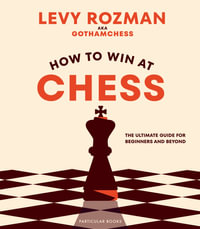| Preface | p. xiii |
| Decision Theory and Human Behavior | p. 1 |
| Beliefs, Preferences, and Constraints | p. 4 |
| The Meaning of Rational Action | p. 6 |
| Why Are Preferences Consistent? | p. 7 |
| Time Inconsistency | p. 8 |
| Bayesian Rationality and Subjective Priors | p. 11 |
| The Biological Basis for Expected Utility | p. 16 |
| The Allais and Ellsberg Paradoxes | p. 16 |
| Risk and the Shape of the Utility Function | p. 18 |
| Prospect Theory | p. 21 |
| Heuristics and Biases in Decision Making | p. 26 |
| Game Theory: Basic Concepts | p. 30 |
| The Extensive Form | p. 30 |
| The Normal Form | p. 33 |
| Mixed Strategies | p. 34 |
| Nash Equilibrium | p. 35 |
| The Fundamental Theorem of Game Theory | p. 36 |
| Solving for Mixed-Strategy Nash Equilibria | p. 37 |
| Throwing Fingers | p. 38 |
| The Battle of the Sexes | p. 38 |
| The Hawk-Dove Game | p. 39 |
| The Prisoner's Dilemma | p. 40 |
| Alice, Bob, and the Choreographer | p. 41 |
| An Efficiency-Enhancing Choreographer | p. 43 |
| The Correlated Equilibrium Solution Concept | p. 44 |
| Game Theory and Human Behavior | p. 45 |
| Self- and Other-Regarding Preferences | p. 46 |
| Methodological Issues in Behavioral Game Theory | p. 49 |
| An Anonymous Market Exchange | p. 52 |
| The Rationality of Altruistic Giving | p. 54 |
| Conditional Altruistic Cooperation | p. 56 |
| Altruistic Punishment | p. 57 |
| Strong Reciprocity in the Labor Market | p. 59 |
| Altruistic Third-Party Punishment | p. 61 |
| Altruism and Cooperation in Groups | p. 64 |
| Inequality Aversion | p. 68 |
| The Trust Game | p. 71 |
| Character Virtues | p. 73 |
| The Situational Character of Preferences | p. 75 |
| The Dark Side of Altruistic Cooperation | p. 77 |
| Norms of Cooperation: Cross-Cultural Variation | p. 78 |
| Rationalizability and Common Knowledge of Rationality | p. 83 |
| Epistemic Games | p. 83 |
| A Simple Epistemic Game | p. 86 |
| An Epistemic Battle of the Sexes | p. 87 |
| Dominated and Iteratedly Dominated Strategies | p. 88 |
| Eliminating Weakly Dominated Strategies | p. 89 |
| Rationalizable Strategies | p. 90 |
| Eliminating Strongly Dominated Strategies | p. 92 |
| Common Knowledge of Rationality | p. 93 |
| Rationalizability and Common Knowledge of Rationality | p. 94 |
| The Beauty Contest | p. 94 |
| The Traveler's Dilemma | p. 95 |
| The Modified Traveler's Dilemma | p. 96 |
| Global Games | p. 98 |
| CKR Is an Event, Not a Premise | p. 100 |
| Extensive Form Rationalizability | p. 102 |
| Backward Induction and Dominated Strategies | p. 102 |
| Subgame Perfection | p. 104 |
| Subgame Perfection and Incredible Threats | p. 105 |
| The Surprise Examination | p. 105 |
| The Common Knowledge of Logicality Paradox | p. 106 |
| The Repeated Prisoner's Dilemma | p. 107 |
| The Centipede Game | p. 108 |
| CKR Fails Off the Backward Induction Path | p. 110 |
| How to Play the Repeated Prisoner's Dilemma | p. 112 |
| The Modal Logic of Knowledge | p. 114 |
| Backward Induction and Extensive Form CKR | p. 115 |
| Rationality and Extensive Form CKR | p. 118 |
| On the Nonexistence of CKR | p. 119 |
| The Mixing Problem: Purification and Conjectures | p. 121 |
| Why Play Mixed Strategies? | p. 121 |
| Harsanyi's Purification Theorem | p. 123 |
| A Reputational Model of Honesty and Corruption | p. 125 |
| Purifying Honesty and Corruption | p. 128 |
| Epistemic Games: Mixed Strategies as Conjectures | p. 128 |
| Resurrecting the Conjecture Approach to Purification | p. 129 |
| Bayesian Rationality and Social Epistemology | p. 132 |
| The Sexes: From Battle to Ballet | p. 133 |
| The Choreographer Trumps Backward Induction | p. 134 |
| Property Rights and Correlated Equilibrium | p. 135 |
| Convention as Correlated Equilibrium | p. 136 |
| Correlated Strategies and Correlated Equilibria | p. 136 |
| Correlated Equilibrium and Bayesian Rationality | p. 138 |
| The Social Epistemology of Common Priors | p. 139 |
| The Social Epistemology of Common Knowledge | p. 141 |
| Social Norms | p. 143 |
| Game Theory and the Evolution of | |
| Table of Contents provided by Publisher. All Rights Reserved. |
























